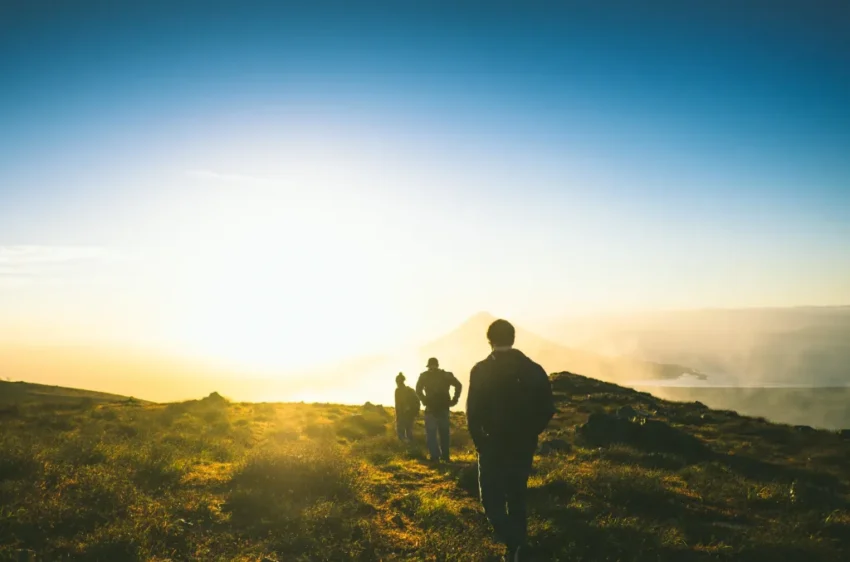Traveling has long been celebrated as one of the most enriching experiences for individuals. While some people embark on journeys for leisure, others seek adventure or escape. However, no matter the reason, one truth remains consistent: travel has a transformative power that can change your perspective on life in ways you never expected. Whether you’re traversing the bustling streets of Tokyo, hiking the serene landscapes of the Swiss Alps, or wandering the historical ruins of Rome, the act of travel challenges your views, broadens your horizons, and ultimately reshapes the way you perceive the world and yourself.
In this article, we will explore how travel influences and changes your perspective on life. We’ll delve into the ways it fosters empathy, teaches patience, challenges assumptions, promotes cultural understanding, and provides you with the tools to see the world through a fresh lens. Additionally, we’ll answer some frequently asked questions to give you deeper insights into this transformative experience.
1. Broader Understanding of Different Cultures
One of the most profound ways travel can change your perspective is by exposing you to different cultures. When you step out of your familiar environment and immerse yourself in a new culture, you begin to understand and appreciate the diversity of human experience.
Cultural exchange fosters empathy, making it easier to see the world through someone else’s eyes. You may find yourself witnessing traditions that seem unusual or unfamiliar at first but soon come to understand their significance within that culture. Through this immersion, travel breaks down stereotypes, opening you up to more nuanced perspectives and creating a deeper respect for people from different walks of life.
For example, visiting Japan might introduce you to the Japanese tea ceremony, where every movement is an art form and a reflection of the culture’s deep respect for nature and mindfulness. In contrast, exploring the vibrant markets of Morocco might reveal the communal approach to life, where sharing food, music, and stories is an essential part of daily existence. These experiences, although seemingly simple, allow you to understand cultures more intimately and realize that there is more than one way to live a fulfilling life.
2. Challenging Your Comfort Zone
When you travel, you are forced to step outside your comfort zone. Whether it’s trying new foods, navigating unfamiliar cities, or dealing with language barriers, travel presents challenges that encourage personal growth and adaptability. Over time, you begin to feel more comfortable with discomfort.
This constant push to adapt helps you see that the limitations you place on yourself are often self-imposed. You learn that it’s possible to thrive outside of your familiar environment, and this realization can translate to other areas of life. Whether it’s pursuing a new career, taking on a leadership role, or confronting personal fears, the lessons learned while traveling provide you with a newfound sense of confidence and resilience.
For instance, hiking to the summit of a mountain or diving into a new language might initially seem daunting. But with every step or new word learned, you gain confidence and a sense of accomplishment. These experiences prove to you that challenges are often just opportunities in disguise.
3. Developing a Deeper Sense of Gratitude
Traveling often opens your eyes to the differences between your life and the lives of others. Whether you visit a developing country or a city with a history of hardship, you are likely to encounter poverty, inequality, and social struggles. This exposure can be a wake-up call, reminding you of the privileges you may take for granted.
When you witness how people living in challenging conditions still manage to find joy, it forces you to reassess your own life. You begin to appreciate the comforts and opportunities you have, from clean water to access to education and healthcare. This heightened sense of gratitude can help shift your focus away from materialism and toward a more meaningful and contented life.
For example, volunteering in a rural village in Southeast Asia might reveal how people living in poverty are incredibly resourceful, happy, and deeply connected to their community. This kind of experience can inspire you to embrace a more minimalist lifestyle and prioritize relationships over possessions.
4. Learning to Be Present
In our fast-paced, digitally connected world, it’s easy to become distracted and disconnected from the present moment. Traveling, especially to places that are remote or less technologically advanced, forces you to slow down and be more mindful of your surroundings. This is particularly evident when traveling to places where technology isn’t as prevalent, such as rural villages or nature reserves.
In these environments, you are encouraged to immerse yourself in the present moment—whether that’s savoring a local dish, watching the sunset over the ocean, or simply enjoying the beauty of nature. This heightened awareness of the present not only makes you more appreciative of your surroundings but also helps you reconnect with your inner self.
By learning to live in the moment while traveling, you can take this newfound mindfulness back to your daily life. You become more engaged in your work, relationships, and hobbies, appreciating the richness of the experiences right in front of you.
5. Changing Your Views on Success
Our societal definitions of success are often rooted in material wealth, career achievements, and social status. However, when you travel and meet people who define success differently, your views can change. In some cultures, success is measured by the strength of family bonds, the level of community involvement, or the ability to live in harmony with nature.
For instance, traveling to a village where people place a high value on communal living and sharing may shift your perspective on what truly matters in life. Instead of focusing on climbing the corporate ladder or accumulating possessions, you may begin to value experiences, relationships, and personal fulfillment more.
In addition, traveling exposes you to various economic models and philosophies, from the highly capitalist cities of the West to the more communal societies in parts of Africa and Asia. These varying approaches can help you realize that there are multiple ways to live a fulfilling and successful life—success is not a one-size-fits-all formula.
6. Learning New Perspectives on Global Issues
Travel also gives you a more complex and global perspective on political and social issues. When you visit a country that is dealing with specific challenges—whether it’s climate change, economic inequality, or political unrest—you gain a better understanding of the complexities behind these problems. It’s easy to have a limited view of global issues when you are only exposed to them through the lens of media or the perspective of your own country.
By seeing firsthand how these challenges affect people in different parts of the world, you become more empathetic and more likely to advocate for positive change. You might find yourself passionate about global issues, working toward solutions, or becoming involved in charitable initiatives. Traveling encourages you to think critically about the world around you, making you more socially and politically aware.
7. Building Connections and Lifelong Friendships
Finally, one of the most rewarding aspects of travel is the people you meet along the way. Traveling allows you to form connections with people from all walks of life, from fellow travelers to locals. These relationships often transcend cultural and linguistic barriers and can last a lifetime.
When you travel, you learn to appreciate the commonalities that unite us all, regardless of our backgrounds. The friendships you form on the road can change your perspective on human relationships and highlight the importance of connection in a world that often feels divided.
For instance, meeting a family in rural India who invites you to share a meal can remind you of the universal nature of kindness and generosity. Traveling encourages you to be open to new relationships, teaching you that friendship and human connection are what truly enrich your life.
Frequently Asked Questions (FAQs)
- How does travel change a person’s perspective? Travel broadens your worldview by exposing you to new cultures, traditions, and lifestyles. It challenges your assumptions, fosters empathy, and teaches you to appreciate the diversity of the human experience.
- Can travel make you more patient? Yes, travel requires patience, especially when dealing with delays, language barriers, and unfamiliar environments. This patience often extends to other areas of life, making you more adaptable and understanding.
- Does traveling help with self-discovery? Absolutely! Traveling exposes you to new challenges and opportunities for growth, which can lead to a deeper understanding of yourself and your desires in life.
- What are the benefits of traveling solo? Traveling alone can be transformative. It provides the opportunity for introspection, independence, and the chance to make decisions based on your own needs and desires. It often leads to greater self-confidence.
- How can travel teach you gratitude? Seeing the way others live—particularly those who face hardship—can make you more appreciative of the privileges and comforts you have in your own life.
- Is it possible to travel without a big budget? Yes! Many people travel on a tight budget by opting for budget accommodations, using public transportation, and seeking out free or low-cost activities.
- How can travel influence your career or life goals? Traveling exposes you to different ways of life, success, and fulfillment. It may inspire you to shift your career focus, pursue your passions, or live a more meaningful life based on your experiences.
Conclusion
Travel has the power to reshape your perspective in profound ways. It challenges your assumptions, introduces you to new ways of thinking, and encourages you to view the world through a more open and empathetic lens. From fostering a deeper understanding of cultures to teaching the importance of patience and mindfulness, the lessons learned on the road stay with you long after your journey ends.
As you travel, you develop a greater appreciation for the interconnectedness of humanity, the importance of gratitude, and the value of authentic connections. Travel transforms you into a more self-aware, compassionate, and open-minded person—qualities that enrich every area of your life.
Key Takeaways
- Travel exposes you to new cultures, broadening your understanding of the world.
- It challenges your comfort zone, fostering personal growth and resilience.
- Travel helps you develop empathy, gratitude, and mindfulness.
- It encourages you to rethink your views on success, happiness, and fulfillment.
- Traveling opens doors to lifelong friendships and meaningful connections with others.
Travel is more than just a getaway; it’s a powerful tool for personal transformation.

